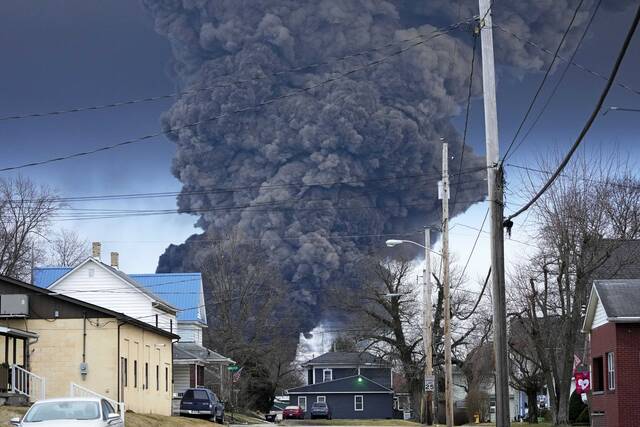The Pennsylvania Department of Environmental Protection has not found chemicals from the Norfolk Southern train derailment in East Palestine, Ohio, in samples taken in the Keystone State.
On Monday, DEP acting Secretary Rich Negrin said chemicals have not been detected in soil or water samples.
“We are thrilled that the results so far do not show signs of contamination in Pennsylvania from this derailment, but we are going to remain vigilant and continue our monitoring to ensure that any contamination from the derailment site does not spread,” he said.
News that samples have not been detected is good. However, it also seems incomplete.
DEP unveiled an interactive mapping tool Monday that allows people to see where samples have been taken and what those samples showed. It’s a smart and transparent way to let people see the information instead of just relying on news releases or statements from an official in front of a bank of microphones.
Officials have a tendency to try to soothe. They want people to remain calm. That’s important. People who are calm and rational are going to take information and process it more logically rather than reacting from fear and panic. It is an understandable tack to take.
But looking at the map shows two different colors scattered at various points within the derailment buffer zone and along waterways extending farther away.
There are the turquoise squares, diamonds, triangles and circles that denote final analyzed samples of soil, surface water, public water and private well water. But there are also at least as many yellow shapes that indicate samples that have been taken with results still pending. Four of those are the samples taken closest to the derailment site.
DEP should know that sometimes the problems from chemicals do not show up right away. Pennsylvania is a state that is steeped in legacy pollution from things like acid mine drainage and oil wells. Factories and landfills have had their own impact on soil and water that has often taken decades to discover.
The good thing about this testing is that it should minimize that long-term problem. Early and regular testing is like proactive health care. It’s easier to treat a problem if found when at its smallest.
But the vigilance Negrin mentioned is the important second step that can’t be neglected the further we get from the February crash.








